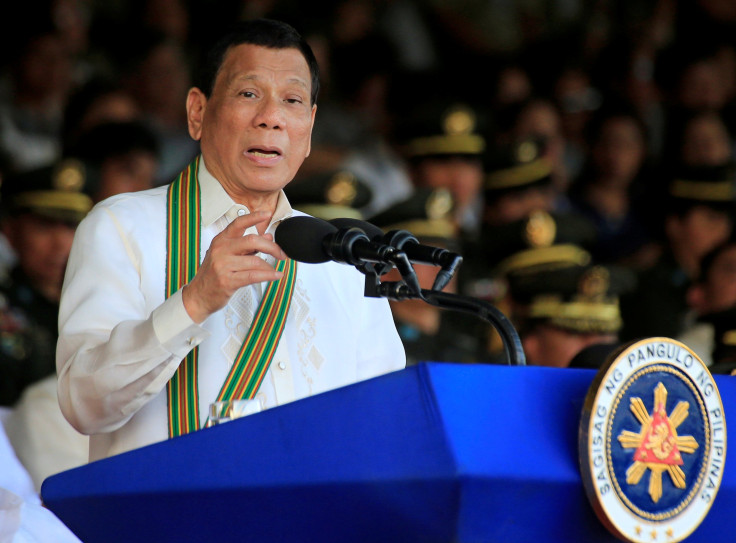Duterte Was 'Apologetic' When He Brought Up Spratly Islands With China's Xi

Philippine President Rodrigo Duterte is not a man who is easily intimidated but he seemed to have an almost apologetic tone in his words to Chinese President Xi Jinping over a United Nations arbitral ruling of 2016. That ruling went the way of the Philippines, denying China’s claims of sovereignty over the bulk of the South China Sea that includes the Spratly Islands located inside the Philippine’s exclusive economic zone (EEZ).
One explanation is that Duterte felt obligated to raise the subject because he had promised to do so in recent speeches he made in the Philippines before the current talks. He had been criticized for being “soft” on China and perhaps he wanted to show a firmer attitude with Xi. On the other hand, the situation in Hong Kong that has garnered global attention may be why he took a milder tone.
On Sunday, presidential spokesperson Salvador Panelo quoted Duterte as telling Xi, “I didn’t want to alarm you with what I’m about to raise because of your problem in Hong Kong, which is why I’m asking for forgiveness, but I need to say this because I promised my countrymen.” The Chinese leader’s response, according to Panelo was, “I understand, and I am OK with it” while continuing to deny the arbitral ruling.
The two leaders seemed to put the 2016 ruling aside, acknowledging their disagreement and to move on to other pressing issues. Panelo said, “The two presidents had mutual respect for each other.” When asked if there was tension during the talks, he added, “Definitely none… You know, if there’s mutual respect, there’s no tension.”
Duterte may have decided that a full-blown confrontation is not the best tactic at this time. Brunei, Malaysia and Vietnam all have had their own territorial issues with China in their respective EEZs and they side with the Philippines in disputing China’s claims in the South China Sea.
The 2016 ruling by the UN-backed Permanent Court of Arbitration (PCA) in The Hague dates back to 2013 when former Philippine President Benigno Aquino III challenged China’s claim that it owned more than 80 percent of the South China Sea contained in a demarcation line called the “Nine-Dash line." China had seized a fishing area known as Scarborough Shoal that resulted in a two-month standoff between Philippine and Chinese vessels.
The ruling was made just two weeks after Duterte assumed his office. He was elected on a platform to wage a war on drugs and was focused on that and not so much on international issues. China has simply ignored the ruling while the rest of the world, including the United States and its western allies continue to pressure China. The last thing Duterte wants is to start a battle with China alone with his country’s meager defenses.
© Copyright IBTimes 2025. All rights reserved.





















